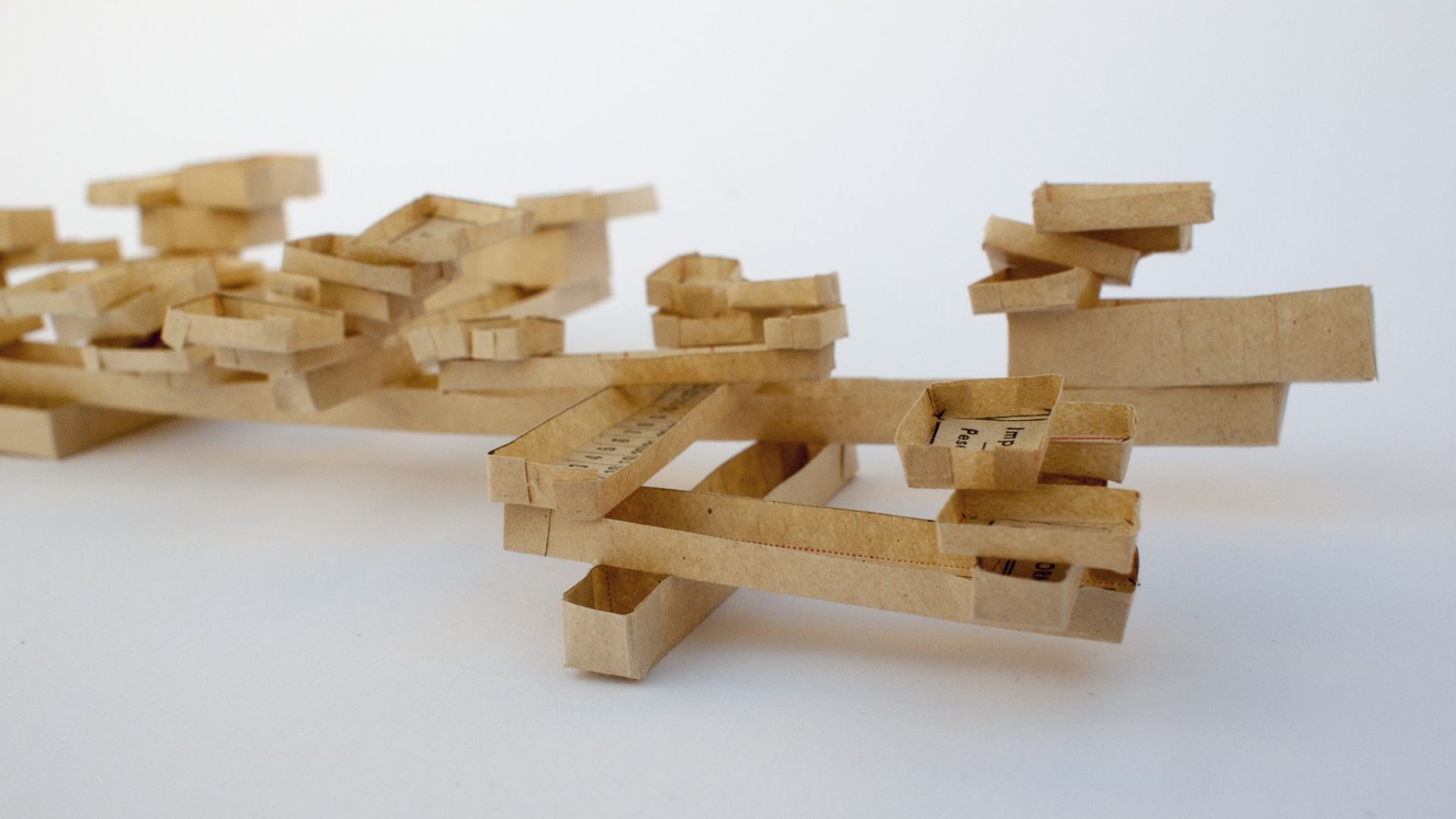DEBIT/CREDIT/BALANCE Luisa Pastor From February 8 to March 30 Santiago
DEBIT/CREDIT/BALANCE
The opening of
the Luisa Pastor’s first solo exhibition (Alicante, 1977) in Galicia will be held on Thursday, February
8th at 8 pm at Nordés Gallery.
The exhibition project DEBIT/CREDIT/BALANCE (DEBE/HABER/SALDO) has its starting point in her Phd research, focusing on questions that address the relations between the theory of value and the theory of linguistic sign in order to question the strict legislation that regulates the use of different accounting books. Thus, with this proposal the artist breaks with the current principles of the General Accounting Plan (PGC in its Spanish initials), in search of a new poetic and political language.
The title, which gives the name to this exhibition, is created from the words included in one of the pieces of the exhibition, in which the artist cuts and pastes approximately 1.230 cells corresponding to the concepts DEBIT/CREDIT/BALANCE, taken from a series of current account books; her work is based on the hypnotic and mechanical repetition of this capitalist litany, something that it’s difficult to question. Thus, the work proposed by Luisa Pastor begins with a physical and symbolic rupture of the accounts sheets, in search of a series of ironic and ingenious strategies that question the foundations of the theory of value and the theory of linguistic equivalence of the contemporary capitalist system.
Likewise, by entering a commercial space -though not only- such as the art gallery, this proposal sets out the contradiction established between the art market system and its need for those who are part of it.
Luisa Pastor is an artist and PhD in Fine Arts. Unlike the organicity of traditional work, she retrieves the poetic and political capacity of the fragment, thanks to a critical questioning of the denotative force of language that, through a complex process of assembly, shows the game’s internal limits of representation, which is always insufficient. In this way, she constructs fictional universes based on humour and irony, inviting us to a deeper reflection on the reference frames that structure the material reality of the contemporary world. In her work, she uses old accounting books as the main material whose sheets she works with precision and thoroughly and whose titles leave no one indifferent.

